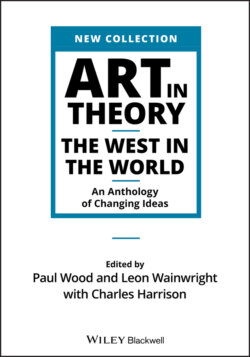Читать книгу Art in Theory - Группа авторов - Страница 23
IA5(i) Sigismondo Malatesta of Rimini (1417–68) Letter of introduction for Matteo de’ Pasti to Mehmed II
ОглавлениеThis letter of introduction, written in 1461 for the artist Matteo de’ Pasti from Sigismondo Malatesta, Duke of Rimini to the Ottoman sultan Mehmed II (cf. IA5(iii)), responds to a request from the sultan for an artist. The letter was translated for the present volume by Giuliana Paganucci and Richard Dixon and edited by Paul Wood. It is reprinted in full in Jonathan Raby, ‘Pride and Prejudice: Mehmed the Conqueror and the Italian Portrait Medal’, Studies in the History of Art, vol. 21, Appendix 1, Washington, DC: National Gallery of Art, 1987, pp. 171–94.
Over the past days I was informed by a great number of messengers and by letters from the Venetian nobleman Girolamo Michiel that you very much admire sculptures and medals which record great men of antiquity, famous commanders and emperors. I too very often find myself admiring their portraits, precisely because they allow a silent object to speak to its contemporaries and to posterity. This interest of yours was, I felt, admirable and worthy of a great sovereign, considering the immortality of his fame. […] It is universally known that Alexander the Great, renowned king of the Macedonians, behaved much like you in this regard. Indeed this sovereign, so desirous of these things about which we have just spoken, would not let himself be portrayed in paintings or sculptures by just anybody, so that he actually ordered by edict that no one, except Apelles, could portray him in paintings and that no one, except Lysippos, could sculpt the features of brave Alexander in statues of bronze. […] In this regard, you most insistently ask that Matteo de’ Pasti of Verona, for several years my companion and friend, a marvellous artist, be sent to you, so that he may portray you in paintings and reliefs. I am attached to him by deep affection, having had countless opportunities to admire his virtues, the diligence that he has always assured and demonstrated to me in every circumstance, and certainly the greatest loyalty, extraordinary modesty and learning unequalled in our times, and I have bestowed the highest honours on him and rewarded him with generosity. Various princes of this our Italy and of France have expressed the desire to have him with them, and until today I have never yielded to the pressures of anybody, not wishing to be parted from him. […] I nevertheless entrust him entirely to your loyalty and benevolence and commend him to you with all the kindness, affection and apprehension of mind of which I am capable. It remains for you to welcome him with your humanity and your usual benevolence.
